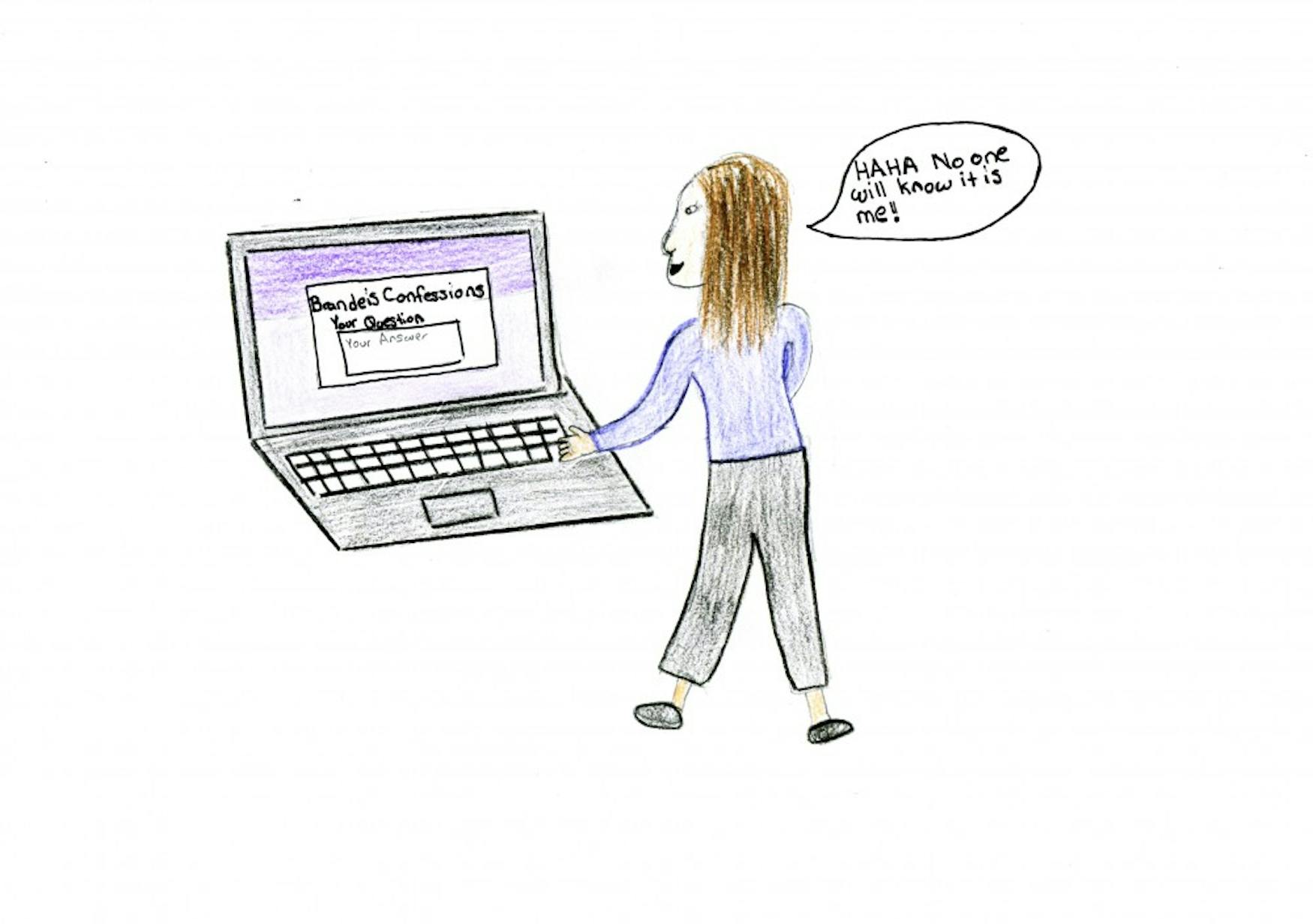Brandeis Confessions: anonymous honestly at a price
“Man is least himself when he talks in his own person. Give him a mask, and he will tell you the truth.” So said Oscar Wilde in 1891, long before the advent of Internet forums. The fact that his quote still circulates in various forms says a lot about how true it remains. When people are anonymous, they’re more likely to say what they believe, especially if those beliefs are unpopular or would lead to social stigmatization. It’s why all the questionnaires we take nowadays are anonymous – no one in their right mind would tell the truth on the recent Health Survey if there was some chance that their drinking habits and sexual proclivities would become public knowledge.
In this regard, anonymity is extremely valuable. However, it comes at a cost. It largely removes the consequences of one’s speech, meaning one is as free to lie as to tell the truth. Worse still, it is possible for someone to say hurtful things, whether true or not, with the intention of offending someone and the expectation of not getting caught. I’ve never understood the appeal of offending others for laughs, but clearly some do. The existence of certain less-than-friendly online groups – 4chan comes to mind – is evidence enough of that.
This brings us to Brandeis Confessions, a Facebook page set up last year in the model of other universities’ confessions pages. Brandeis Confessions exists as a place for students to anonymously comment on, or ask questions about, things that happen on campus. The process for entering a confession is pretty simple – one fills out a short Google form with the confession and submits it. No login is required, and no information about the poster is recorded. In theory, someone could post as many confessions as he or she wanted to in one sitting. Once every few days, the group’s anonymous administrator posts the latest batch, all at once, onto the wall, where Brandeis students and the occasional helicopter parent can publicly comment on them. That’s really all there is to it. Ultimately, it’s at the administrator’s discretion to post a confession or not, but I get the impression that almost everything gets through. I’ve used the page a few times in the past, and, to the best of my knowledge, everything I’ve submitted has been posted.
The anonymous nature of the confessions is helpful because, as Wilde said, if people are guaranteed anonymity, most will tell the truth. Brandeis Confessions has therefore become the place to talk about things that can’t be discussed elsewhere. A common refrain on the page is someone anonymously talking about sex – after all, where else can sex be openly discussed? Others ask for romantic advice, or complain about Brandeis’ supposed lack of attractive students. Unpopular opinions are frequent, and it seems to me that the political commentary on the page has a rightward slant. This shouldn’t be too surprising; Brandeis has a relatively left-leaning climate, so it makes sense that political conservatives feel isolated and turn to Brandeis Confessions to discuss their beliefs anonymously. As before, this is about people being honest and telling the truth as they see it, and that shouldn’t concern anyone.
What should concern everyone, and concerns me, is the repeated presence of confessions that can only be described as inappropriate. By this, I don’t mean the person who fantasized about making love to Louis Brandeis on the Usdan deli counter, or who petitioned us to change the University’s mascot to Gritty or a pair of sentient cargo shorts. I mean the person who talked about how vaccines cause autism, or who used a slur while referring to a club member, or who posted a neo-Nazi slogan – admittedly a fairly innocuous one, but still. It’s not clear whether these people were being serious when they wrote their posts, or whether any of them were deliberately trying to anger others. If the latter was their goal, they clearly succeeded, especially considering the traction that each of those confessions got. This situation would be bad enough if it were just among students, but faculty and family members look at the page, too. I don’t want to sound like the thought police, but it seems to me that confessions that are factually incorrect or misleading, or that are designed deliberately to anger others, should be screened from the page.
It looks as though some progress is being made towards this end. Recently, one post was taken down minutes after it went up, and an apology was issued shortly afterwards. I don’t know what the contents of that post were, but perhaps that’s for the best.
This kind of problem has plagued other anonymous systems for some time, most famously in the case of Yik Yak, the once-promising digital bulletin board that descended into a platform for hate speech and bomb threats. Clearly, some moderation is needed to avoid this fate.
Brandeis Confessions plays a valuable role in our community for the same reason that the Health Survey does. People can be honest on it. Sometimes the result is funny, sometimes sad, sometimes heartwarming. It should never be offensive. Let’s keep it that way.



Please note All comments are eligible for publication in The Justice.